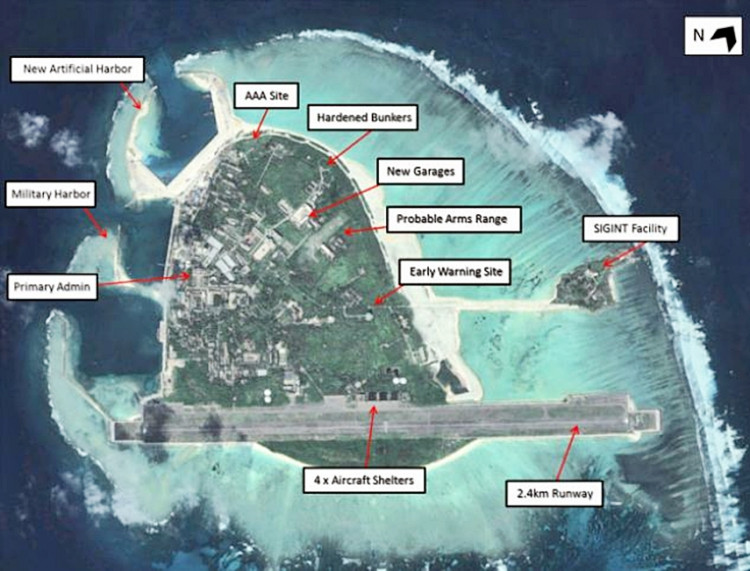The United and China aren't totally at peace, not in the traditional sense of there being a lack of conflict between both nations. Neither are they in a state of war, which is patently obvious.
The "twilight zone" both these industrial powers find themselves locked into is being described as a "quiet kind of Cold War" by American intelligence expert Michael Collins, Deputy Assistant Director of the CIA's East Asia Mission Center.
Collins said China is attacking the United States across all fronts - but excluding outright war - by deploying all its resources in a blatant campaign to replace the United States as the only world Superpower. If the original Cold War pitting the United States against the defunct Soviet Union from 1947 to 1991 be a guide, the world can expect a series of bloody proxy wars between both countries as China moves more aggressively to dislocate U.S. power.
China is quietly involved in the ongoing Syrian Civil War, and has supplied assault rifles, machine guns, ammunition, anti-tank guided missiles and rocket-propelled grenades to the Syrian Arab Army under the dictator, Bashar al-Assad. China has also provided military advisers to train the Syrian Army. It has also sold armed aerial drones used for assassinations by Syria and Iraq.
The example of Syria illustrates China's current policy of avoiding a war against the U.S., but not at any cost, argued Collins. There will come a time when China will be forced to launch a proxy war against the U.S. to assert its military stature, and the likeliest place for this event will be Africa.
Collins pointed out that China's ageing communist leadership under president Xi Jinping has made it a policy to subtly and quietly undermine the U.S. on multiple fronts in ways that are different from Russia's more blatant and bloodier tactics used in the Cold War.
"I would argue ... that what they're waging against us is fundamentally a Cold War -- a Cold War not like we saw during the Cold War (between the U.S. and the Soviet Union) but a cold war by definition," according to Collins.
Collins noted the untrammeled expansion of the People's Liberation Army (PLA) as the armed instrument of China's national interests. But the more irrefutable proof of China courting a future conflict is the militarization of its man-made islands in the South China Sea.
China is turning this strategic body of water into a Chinese lake to deny the U.S. Navy unimpeded access. But the world remains mostly hostile to China's sea grab, as it did to Vladimir Putin's illegal annexationof Crimea in March 2014.
"I would argue that it's the Crimea of the East," said Collins, referring to the South China Sea.
Collins' warnings are the latest coming from the U.S. intelligence community. Director of National Intelligence Dan Coats earlier warned of rising Chinese aggression, both military and non-military. He urged the U.S. to stand strong against China's effort to steal business secrets and academic research.
Chinese students studying in the U.S. also represent a threat to U.S. national security. Susan Thornton, acting assistant secretary of state for East Asian and Pacific affairs, said increasing the public's awareness about the activities of the hundreds of thousands of Chinese students or groups at U.S. universities isone way to help mitigate potential damage from espionage.
Collins' "quiet kind of Cold War" comments preceded the approval last Monday of the Defense Authorization Act (NDAA) for Fiscal Year 2019. The final version of the 2019 NDAA requires the Trump administration to formulate a strategy to counter China's activities worldwide and strengthen military partnership with countries (including the Republic of China) in the Indo-Pacific.
Hong Lei, consul general of the Chinese consulate general in Chicago, slammed the NDAA's designation of China as a strategic competitor of the U.S. and said this move reflected America's Cold War and zero-sum game mentality.






